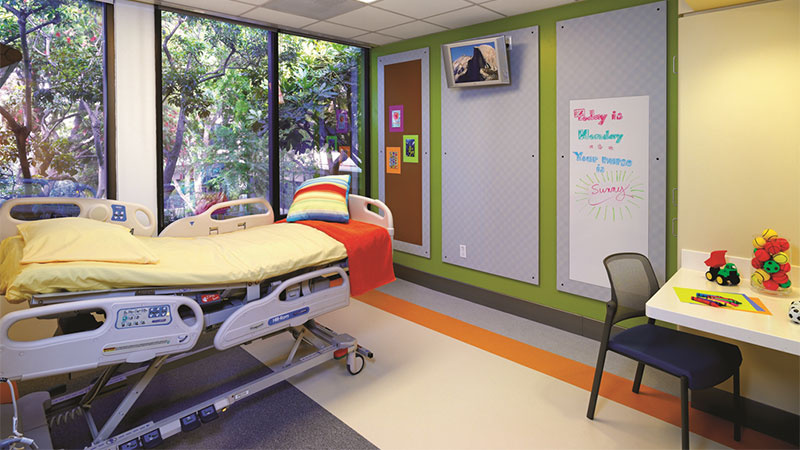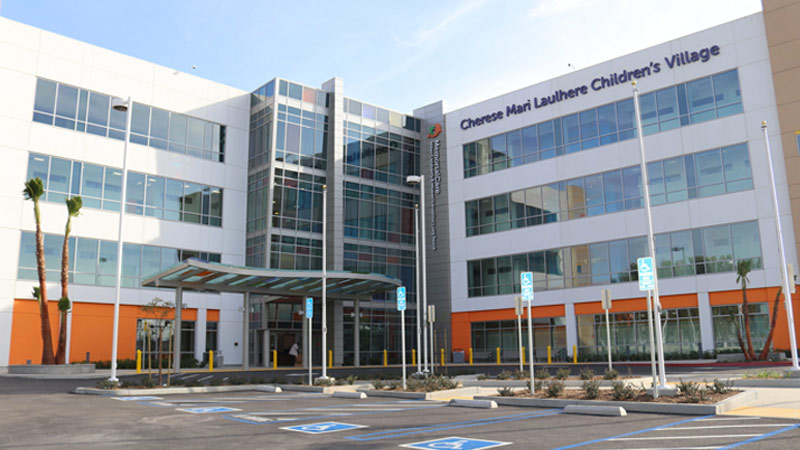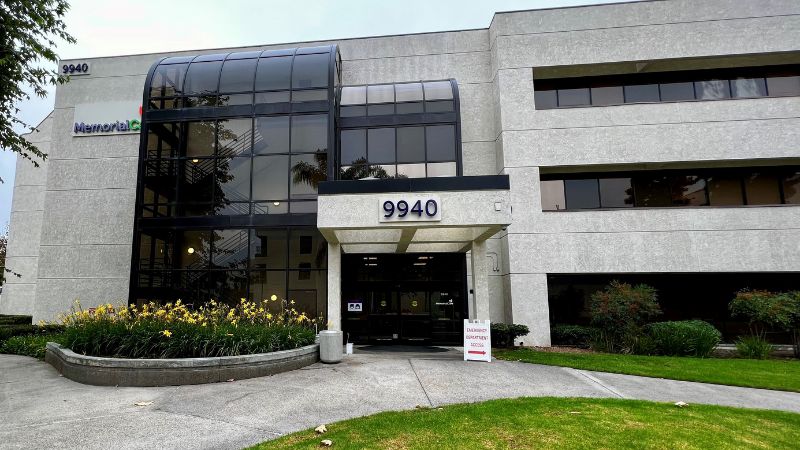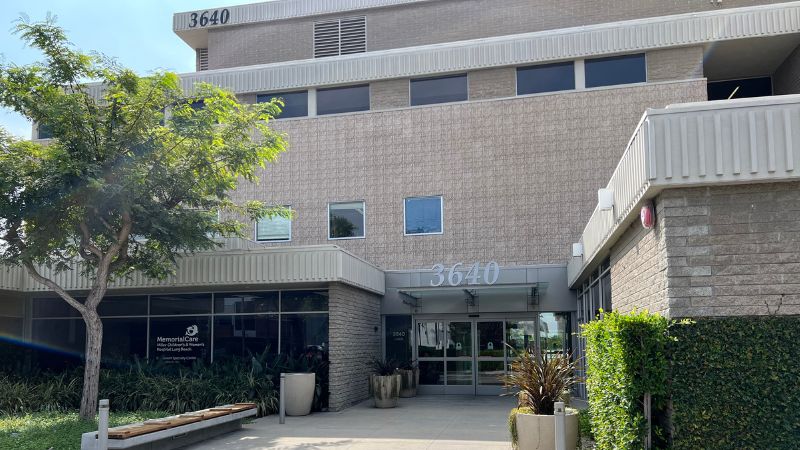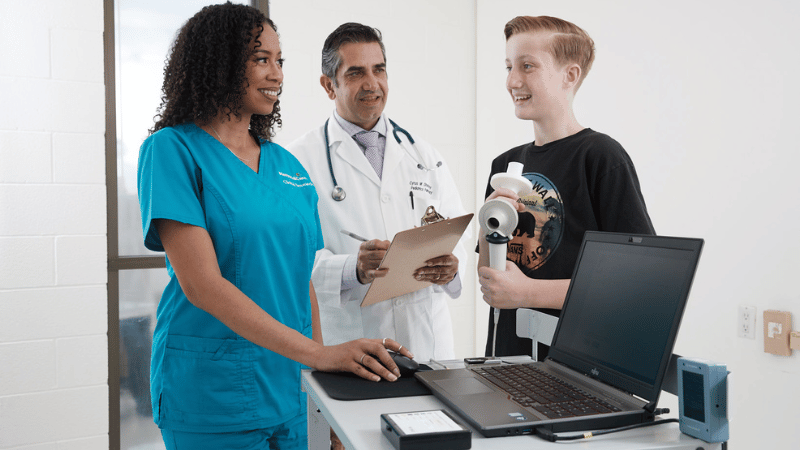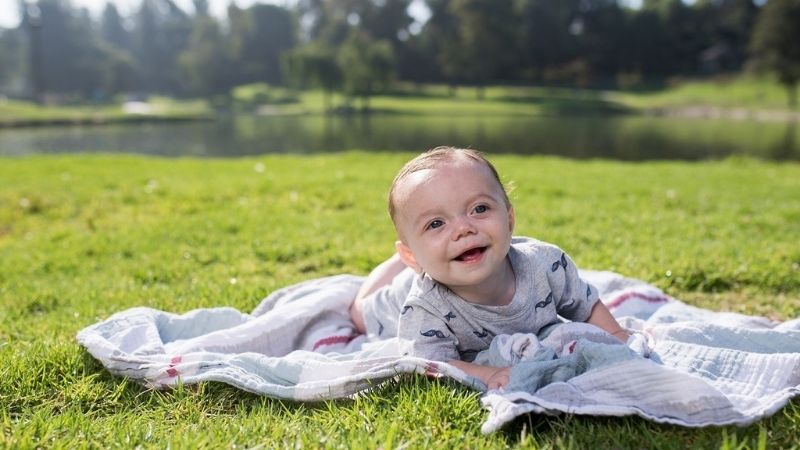Miller Children’s & Women's Cystic Fibrosis Center is one of the largest in the region and provides comprehensive, multi-disciplinary care including evaluation, diagnosis and treatment for children from birth to age 21, with cystic fibrosis (CF). The Center offers diagnostic testing, such as sweat tests, genetic tests, throat cultures, sputum cultures, blood work and chest x-rays.
Team Approach
The only way to fight CF is as a team. Miller Children’s & Women's uses a team approach to treat CF. The team includes specialists, the patient and their family. Many of the care team members have dedicated their careers to treating and improving the lives of children and young adults with CF.
In addition, a pediatric pulmonary fellowship program trains new physicians in leading-edge techniques while encouraging them to perform creative research to further the knowledge available to treat CF patients.
Education
Education is a key component to CF care. Each interaction with a patient and family is considered a teaching moment. The goal of the Center is to have knowledgeable, engaged patients and families who see the importance of their role on the team.
Parents are taught to be advocates for their children and open and honest communication is always encouraged.
Cystic Fibrosis Journey
Each patient is treated by the same multi-disciplinary care team while they’re in the hospital, as well as at their check-ups in the Outpatient Specialty Center at least every three months.
The consistent, familiar team helps reduce anxiety for patients and families and makes their transition from hospitalization to follow-up care seamless.
While at their check-ups, patients may be seen by a number of specialists and care team members including, but not limited to:
- Pulmonologist
- Gastroenterologist
- ENT (Ear, Nose, Throat) specialist
- Endocrinologist
- Psychologist
- Respiratory therapist
- Registered dietitian
- Physical therapist
- Geneticist
- Social worker
With an emphasis on communication, each care team member is knowledgeable about every patient and their progress.
Each patient’s lung function and body mass index are documented over their entire time with Miller Children’s & Women's, which may be years. The care team presents this data in a graph at each check-up to help patients and families see where they’re progressing and where there is room for improvement.
- Avoid smoke and other vapors or spray that can irritate the lungs
- Use non-toxic cleaning products in the home to help reduce irritation and inflammation in the child’s lungs
- Keep immunizations current – children with cystic fibrosis should get the flu shot every year
- Children with CF should follow a high-calorie, nutritious diet
- Understand and follow the doctor’s instructions
Call the Child's Doctor if He or She Has:
- Fever
- Increased coughing or a cough that is getting worse
- Change in the color and amount of your mucus
- Coughing up blood
- New wheezing or wheezing that is getting worse
- More trouble breathing than usual
- Weight loss or no weight gain without an explanation
- Symptoms that have been discussed as being more serious problems
- Home FEV1 monitor decreases by more than 10%
Cystic Fibrosis Tests & Treatment
There isn’t a cure for cystic fibrosis (CF), but tests and treatments are available to help the child and their family members manage the condition. Tests and treatments can also help identify preventative measures that need to be put into place, such as rest, enzyme treatments, medication or even hospitalization.
Tests the Doctor May Order
Pulmonary Function Testing
Pulmonary function testing is a broad range of tests that measure how well the lungs take in and exhale air and how well they transfer oxygen into the blood.
Blood Tests
Blood or cheek scraping cells can be tested for mutations in the cystic fibrosis transmembrane conductance regulator (CFTR) gene. This is a diagnostic blood test, which is only used when first diagnosing a child. Other blood tests can assess for infection, nutritional health and involvement of certain organs (kidneys, liver, etc).
Chest X-Rays
These are diagnostic tests which use invisible electromagnetic energy beams to produce images of internal tissues, bones, organs, blood vessels and airways onto film. This can help determine fluid or mucus buildup in and around the lungs, or air surrounding the lungs. This can help diagnose pneumonia, or whether a treatment helped, or shows improvement.
Sputum Cultures
Sputum cultures are diagnostic tests performed on the material that is coughed up from the lungs and into the mouth to determine if an infection is present.
Stool Evaluations
These help to measure stool fat absorption.
Enzyme Treatment & Nutrition
Children that have CF need a high-calorie, high-protein diet and are prescribed enzymes to gain weight and grow. Extra snacks at school and high-calorie nutrition supplements may be needed to increase caloric intake. Children with CF need high quality, high calorie foods, not fatty foods. Children with CF need to take their enzymes in a reasonable timeframe both at school and home that allows them a good amount of time to eat.
Exercise & Activities
Exercise and activities help build muscle and strong bones, strengthen the lungs, clear lung mucus and lower emotional stress for children with CF. Children with CF can and should be included in games and activities. However there are days, where CF can limit how much a child can do.
Eventually every pediatric cystic fibrosis (CF) patient will need to transition to an adult health care setting, so they receive age-appropriate and developmentally-appropriate care. However, transition is a process, not a moment in time.
The Cystic Fibrosis Center officially transitions young adults with CF at age 21, but the process starts when the patient first comes to the Center, which may even be as a newborn.
What Does Transition Mean?
The Cystic Fibrosis Center works as a team, with the patient and the parent at the center of that team, to support its patients in their efforts to grow into independent, productive and strong members of the community.
Young patients are given age-appropriate, developmentally-appropriate education and taught skills as they mature, encouraging them to see CF as part of who they are, but not all of who they are.
The care team encourages parents to consider their child’s future at an early age and works with each family to make it the best future possible.
Education
At each stage in their development, patients will be asked to become independent at certain tasks that are part of their health care plan. Parents will be asked to help their children learn these tasks and grow to complete them on their own. For example:
Younger Years
- Teach the child to count out their own pills
- Allow the child to participate in strapping themselves into their vest
Adolescence
- Create a special place in the home where children can write a note to their parents when they are running low on a medication
- Allow the child to be responsible for ordering their own medications
- Encourage the child to make their own follow-up appointments
- This gradual process of independence is supplemented with education in the form of letters to the home at age 16, 18 and 20, reminding parents that the transition journey is kicking into high-gear.
- The letters include information about college applications and scholarships, as well as the address and phone number of the adult Cystic Fibrosis Center on the Miller Children’s & Women's campus, the name of the nurse coordinator and doctors, the number to call to make an appointment and any other information they may need to make the transition process seamless.
Adult Cystic Fibrosis Center
Unique for a CF center, Miller Children’s & Women's shares a campus with Long Beach Medical Center – an adult hospital that has a CF center.
At many CF centers around the country, the closest adult center may be all the way at the other end of the city, but at Miller Children’s & Women's, we ease our patients transition by assuring them that their care will continue in a familiar setting.
The pediatric and adult CF care teams work closely, with overlap of the two teams. Should a patient choose to continue onto the adult CF center on the campus, their history carries over and many of the care team members may already have relationships with the patient.
Centers & Programs
Our Children's Pulmonary Institute has board-certified specialists in pulmonology, allergy and immunology who work together to treat and improve the quality of life for children and young adults with conditions involving the lungs and respiratory system, such as asthma, lung disease of premature infants, cystic fibrosis, allergies, sleep disorders and more.
Your Care Team
Other Team Members
Certified Asthma Educators
Certified asthma educators provide education on the latest asthma treatments and care to patients, their families and other members of the care team and work with patients to help identify their personal triggers and symptoms based on their diagnosis.
Child Life Specialists
A Child life specialist is a professional who is specially trained to help children and their families understand their diagnosis and cope with being in the hospital.
Physical Therapists
Regular physical activity and even breathing exercises are important for children with lung conditions, especially for patients with cystic fibrosis. In order to stay healthy and active, physical therapists help patients decide what type of physical activities they should do and how often they should do them.
Registered Dietitians
For children with chronic conditions like cystic fibrosis or chronic obstructive pulmonary disease, diet is an important part of staying healthy. A registered dietitian can help patients and families decide what types of meals they should be eating to stay at a healthy weight.
Respiratory Care Practitioners
A respiratory care practitioner specializes in the management, treatment and evaluation of patients who have problems breathing. A respiratory care practitioner helps patients understand their diagnosis and performs lung tests the doctor may order.
Social Workers
Social workers provide emotional support and counseling, information and referrals to community programs or support groups. They can help decrease stress and guide patients and their families during their hospital stay and during their follow up care. The Cystic Fibrosis Center has a dedicated social worker who helps young adults with cystic fibrosis transition from pediatric to adult health care once they turn 21.
Specialty Nurses
In the dedicated pulmonary wing and in our Outpatient Specialty Centers, where patients receive follow up care, there are nurses who specialize in the treatment and care of children who have conditions affecting their lungs and respiratory system.
Locations
Main Location
Other Locations
Awards & Recognition
The Cystic Fibrosis Center has earned recognition for its dedication and knowledge to improving the lives of children and young adults with cystic fibrosis (CF). Each child will benefit from the quality of treatment, dedicated care team, leading physicians, ongoing research efforts and more at the Center.
- The Center is accredited by the Cystic Fibrosis Foundation and follows the clinical guidelines set forth by the Foundation to offer the best care, treatments and support for those with CF.
- Miller Children’s & Women's has the largest number of ongoing active CF clinical trials available to patients in Southern California. The continued research efforts of the CF care team plays a vital role in enhancing patient care and developing more effective medical treatments and diagnostic tools.
- Miller Children’s & Women's is one of only 92 accredited CF care centers that make up The Cystic Fibrosis Therapeutics Development Network (TDN) – the largest CF clinical trials network in the world.
- There are only eight California hospitals with this distinction.

